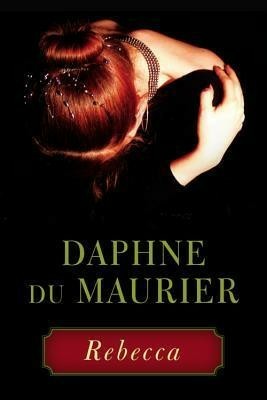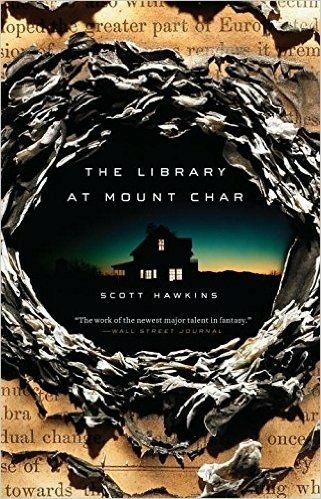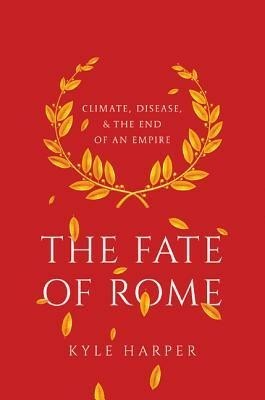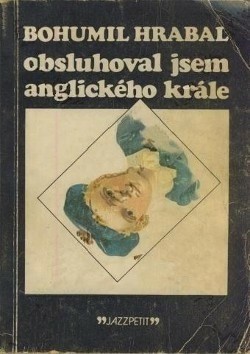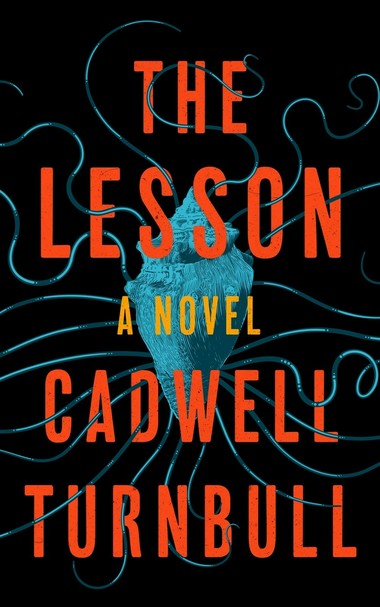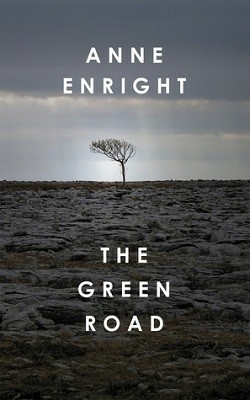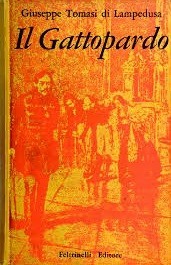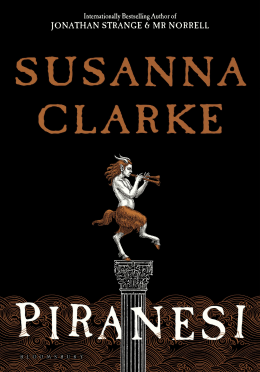Recent searches
Search options
I did an end of year book list last year, and I really liked having to reflect about what books I'd read, and how I felt about them.
It felt a bit rushed though, so I'm trying something different this year, and making a post every day until Christmas about a book I've read and enjoyed
Follow #AdventOfBooks to collect them all
#AdventOfBooks Day 1:
One of my favourite reads of 2021 was Daphne du Maurier's Rebecca. We follow an unnamed narrator as she moves from being paid companion, to marrying a wealthy widower and becoming mistress of a country house. She's shy and diffident, and the house seems haunted by the echo of the late Rebecca, who died the year before.
I loved the overwrought opening, and I loved the mood of the whole story. And I'm definitely on team Rebecca - nobody deserves what happened to her
#AdventOfBooks Day 2: The Library at Mount Char by Scott Hawkins
We follow a bunch of children as they grow up in the Library under the care of the Master. Or rather, that's what we learn about: the book opens just after the Master's disappearance, with the kids locked out of the Library and trying to figure out what's going on.
I really enjoyed the atmosphere and the mix of horror and the absurd. The slow reveal of what was going on and many flashbacks also worked really well.
#AdventOfBooks Day 3: The Fate of Rome by Kyle Harper
A story of Rome focusing on the role of climate and disease in its fate, and how they constrained its course of development
The book covers three pandemics and a few climate shifts, as well as many smaller outbreaks, and is as a great example of how to use science in history writing. Harper introduces a lot of objective evidence, and is very good at showing both where it points, and explaining the things we do not know.
#AdventOfBooks Day 4: I Served the King of England by Bohumil Hrabal
We follow a waiter in Czechia in the years around WWII. At first, he is works at a provincial hotel, then becomes head waiter at a Prague hotel, buys his own hotel, and finally is exiled
It has Hrabal's mix of earnest and absurd, but most of all an intense humanity shines through. The scenes with the Nazis show the earnestness, and the narrator's wish to be imprisoned as a millionaire hits the height of absurdity
#Bookstodon #AdventOfBooks Day 5: The Lesson by Cadwell Turnbull
The book is set on the US Virgin Islands, in the days and years around an alien landing. We discover that the alien ambassador to humanity has lived on Earth for centuries, and we see flashbacks to the colonisation of the islands, and the slave society which was established.
I really liked the scope of the story and I felt that the themes of the book worked well. The description of the setting was vivid and I liked the ending
As a first contact story, the book has echoes of Arthur C. Clarke's Childhood's End, but thematically it's much closer to some of Octavia E Butler's work, in particular her Lilith's Brood series, but also Kindred
#AdventOfBooks Day 6: The Green Road by Anne Enright
A story centered on the family reunion over Christmas of four children and their mother, but we start off by getting to know each of them and watching them make their own life before coming back.
The reunion was so well-written, and you could feel the characters falling into roles and mannerisms that they'd left behind years ago. The tension between who they were now and who they used to be was just perfect.
#AdventOfBooks Day 7: The Leopard by Giuseppe di Lampedusa #Bookstodon
A classic, but one I only got round to reading now. We follow a Sicilian noble family in the period from Garbaldi's expedition of the 1000 to just before WWI
The story is told through a series of shorter scenes with the same characters, separated by months and years, with a fair bit happening off-stage, which worked well
I liked the vaguely nostalgic tone, the bittersweet ending, and the reflections on modern(ish) Italy
#AdventOfBooks Day 8: The Glass Bead Game by Hermann Hesse
We follow the life of Joseph Knecht from childhood, through his attendance at a boarding school in Castalia, a province of the mind, and finally tp his attainment of the position of master of the glass bead game, an intellectual game designed to highlight the connections between different fields of human knowledge.
A mix of Bildungsroman, spiritual treatise, and an attack on ivory towers, but definitely worth a read
#AdventOfBooks Day 9: Cold Comfort Farm by Stella Gibbons
I read this last year, and it's one of the funniest books I've read. It was written in the 1930s but it holds up incredibly well
A modern woman moves temporarily in with distant relations on their farm, and shenanigans ensue. The Starkadders are hidebound and old-fashioned, and generally incredibly weird. Flora sets about improving and reorganising their way of life, and the clash of cultures is both riveting and hilarious.
#AdventOfBooks Day 10: Travel Light by Naomi Mitchison #Bookstodon
A modern fairy tale about Halla, who is thrown to die after her father remarries. She is saved and raised first by bears and then a dragon until she has to strike out on her own. She meets Odin who advises her to "travel light", which she does, refusing to be tied down by earthly possessions, or by expectations of her behaviour. It's sweet, and well written
Some of my best friends at school were the author's great grandchildren
#AdventOfBooks Day 11: Piranesi by Susanna Clarke #Bookstodon
The story of "Piranesi", as written in his diary. He lives in a place he calls the house, which is filled with halls and rooms, no two of which are the same, and with statues all over the place. The house has clouds, oceans and floods and as far as Piranesi knows, he has always lived there
The reader soon suspects things are not quite as described, and indeed they are not. I loved discovering the world through Piranesi's eyes.#


